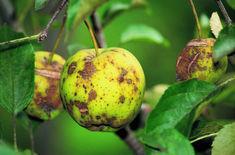

The European Commission claims that proposed changes to the legislation governing the use of pesticides will be better for the natural environment and the health of European citizens. Alessandro Dalpiaz, a fruit farmer from northern Italy, argues that, on the contrary, restricting the active ingredients used in plant protection products will increase the risks to Europe’s countryside and open the door to imports from countries with less strict regulations.
Dalpiaz is director of the fruit and vegetable growers’ association for the Trentino region of Italy. Every year, he and his colleagues produce around 400,000 tonnes of apples, 10,000t of cherries, 30,000t of strawberries and 20,000t of other soft fruits, on 9,500 hectares of land.
Dalpiaz is worried that the commission’s plans to change the regulations authorising which plant protection products can be used in Europe will have a negative effect on his business, with little gain for the environment or people’s health. He is particularly concerned about the likely decrease in the number and variety of plant protection products available to farmers. This problem is likely to arise if the EU, as the European parliament is suggesting, introduces hazard-based criteria to the regulatory approvals process and a class of substances that will be considered as “candidates for substitution”.
To illustrate his concerns, Dalpiaz cites some problems that are already faced by farmers in the apple and soft-fruit sectors, and that are likely to get worse if the existing restrictions on plant protection products are tightened up even more. European apple farmers currently have an acceptable range of plant protection products to choose from, he says. However, the situation will change in 2008 when the insecticide and plant growth regulator Carbaryl, commonly sold by Bayer under the brand name Sevin, is scheduled to be withdrawn from the market.
Dalpiaz argues that because there is no alternative to this product, crops will have to be thinned by hand, thereby raising production costs.
This would be less of a problem if all farmers were subject to the same rules, but growers outside the EU will still be allowed to use the product and import their fruits into the EU. They will therefore have a competitive advantage over their European colleagues, and consumers looking to buy the cheapest products will opt for imported foods, therefore jeopardising the livelihood of EU farmers.
A similar situation exists in the soft-fruit sector, where Dalpiaz explains that the possibility to use plant protection products is already very low.
For example, there are no registered active products for some diseases such as raspberry powdery mildew, and in 2007 the raspberry growers of Trentino lost €1 million (£682,000) worth of product to the disease. Dalpiaz is concerned that farmers who are struggling to make a living will lose yet more money if the current proposals to change the EU plant protection laws are adopted.
“Producers are committed to providing consumers with safe, hygienic foods and, in return, the public authorities need to act to keep the fruit and vegetables sector alive in Europe,” he says, adding that he wants to see a more balanced approach to food safety, whereby the decision-makers look at all sides of the argument- environmental, economic and health - and examine all the facts related to integrated farming before passing legislation.
“We don’t agree that the withdrawal of many plant protection products will lead to a great and instant environmental improvement,” Dalpiaz adds. “On the contrary, a restriction of the range of active principles allowed could be damaging. It is almost impossible to produce without appropriate means of defence - even organic farmers need to apply control means for certain pathologies.”